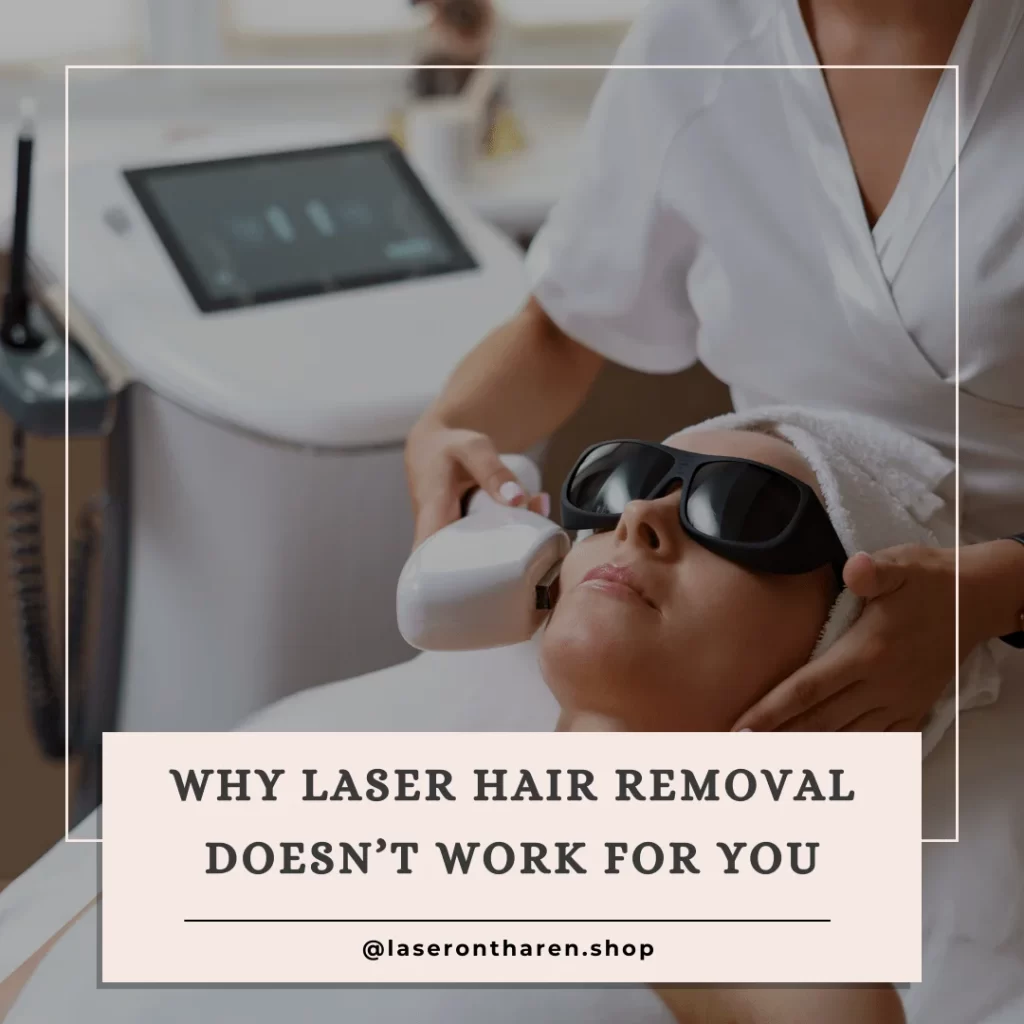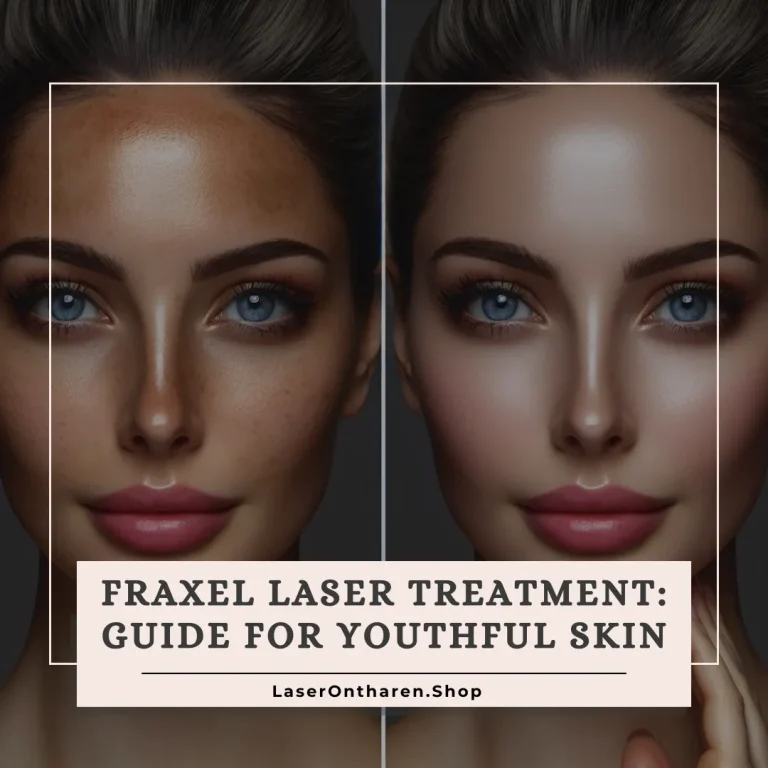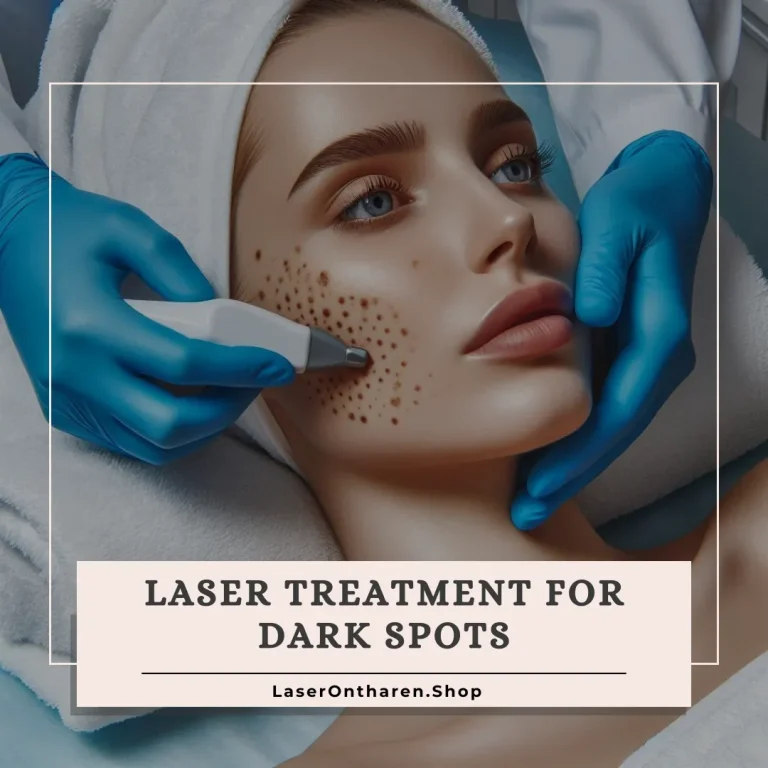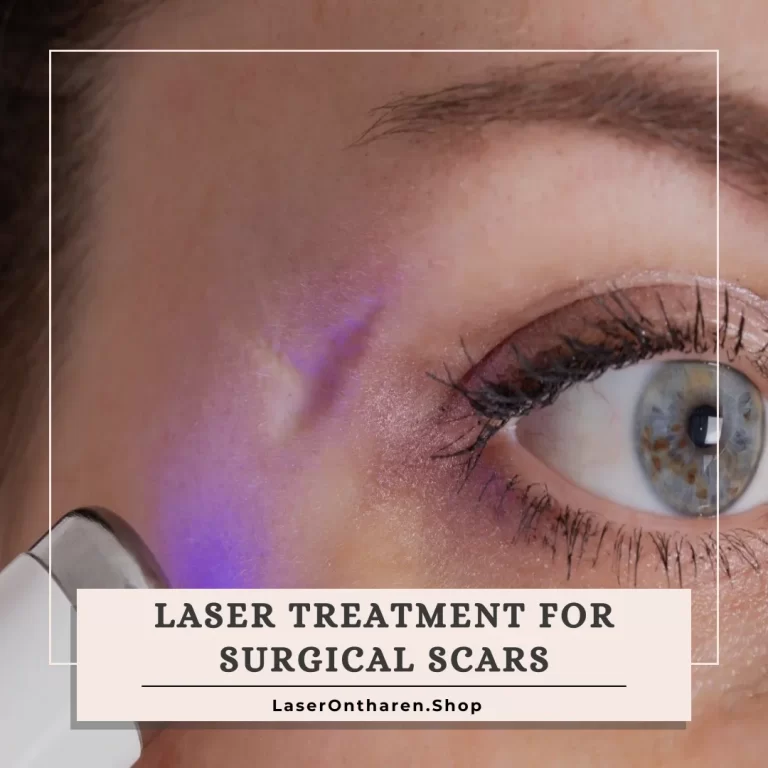Laser hair removal has become a popular solution for long-term hair reduction.
However, some individuals find that it doesn’t always deliver the expected results.
In this article, we’ll explore the key factors that can influence the effectiveness of laser hair removal.
Understanding Laser Hair Removal
Laser hair removal uses concentrated light to target hair follicles. The light is absorbed by the pigment in the hair, damaging the follicle enough to inhibit future growth.
However, several factors can affect its success.
1. Hair and Skin Type
The most common reason for ineffective laser hair removal is the contrast between hair and skin color.
Lasers target pigment and work best with dark hair on light skin. Those with blonde, red, or gray hair might not see optimal results.
2. Hair Growth Cycle
Hair grows in cycles, and lasers are most effective during the ‘anagen’ phase.
Multiple sessions are necessary to target all hair in this active growth phase.
3. Type of Laser Used
Different lasers are suited for different skin types and hair colors.
At LaserOnTharen.shop, we offer best quality laser hair removal devices which work on both light and dark hairs***.
Suitability of Hair for Laser Removal
Does skin color affect laser hair removal?
A critical element in the efficacy of laser hair removal is the contrast between hair and skin colors.
Optimal results are often seen in cases where there is a stark difference, such as dark hair against fair skin.
This is because the laser is designed to target the melanin (the dark pigment) in the hair.
If the hair color blends too closely with the skin tone or is too light, the laser might have difficulty effectively targeting the hair follicles.
Is my hair too light for laser hair removal?
Unfortunately, individuals with blonde, light-colored, or gray hair may find laser hair removal less effective.
These hair colors contain minimal melanin, making it challenging for the laser to identify and eliminate the follicles.
However, with advancements in technology, particularly with high-quality lasers like the Ice Diode Laser, the likelihood of successfully treating lighter hair has significantly improved.
These modern lasers are designed to be more effective on a wider range of hair colors, increasing the chances of successful hair removal for those with lighter hair shades.
Impact of Hormonal Factors on Laser Hair Removal
Hormonal imbalances play a significant role in the effectiveness of laser hair removal.
When hormones are out of balance, as in conditions like polycystic ovary syndrome (PCOS), they can lead to an increase in hair growth.
This can make laser treatments less effective because the new hair growth driven by hormonal changes can counteract the results of the laser procedure.
How To Stop Hormonal Hair Growth?
Hormonal fluctuations, especially during events like pregnancy, can similarly stimulate unexpected hair growth.
In these situations, addressing the underlying hormonal issues is crucial for enhancing the effectiveness of laser hair removal.
A combined approach, tackling both the hormonal aspects and the hair removal process, tends to yield more satisfactory and enduring outcomes.
Hair Texture and Laser Removal Efficiency
Is thick or thin hair better for laser hair removal?
When it comes to hair texture, its thickness and coarseness play a vital role in the laser hair removal process.
Fine or thin hair might not absorb enough laser energy, making it challenging to effectively disable the hair follicles.
This can lead to a reduced effectiveness of the treatment on finer hair types.
Coarse Hair and Treatment Approach
Conversely, coarse hair, often deeply rooted, might require additional sessions for comprehensive results.
Improper Treatment Settings Impact on Laser Hair Removal
Importance of Customized Laser Parameters
The success of laser hair removal greatly hinges on the precision of treatment settings.
This includes factors like laser intensity and pulse duration, tailored to each individual’s skin and hair characteristics.
Inadequate adjustment of these settings can result in insufficient energy absorption by the hair follicles, leading to less effective outcomes.
Impact of Medications and Medical Conditions on Laser Hair Removal
What medications affect laser hair removal?
The efficacy of laser hair removal can also be influenced by certain medications and medical conditions.
Medications that heighten skin sensitivity to light might amplify the risk of negative reactions during the treatment.
Similarly, certain health conditions, particularly those affecting the skin, may deem laser treatments inappropriate or less effective.
Tips for Effective Laser Hair Removal
Consistency is Key
- Attend All Sessions:
For best results, attend all recommended treatment sessions. Laser hair removal typically requires multiple sessions for optimal results. - Be Patient with Results:
Understand that results may not be immediate and that patience is essential for effective laser hair removal.
Why Choose LaserOnTharen.shop?
When it comes to selecting a provider for your laser device needs, LaserOnTharen.shop stands out for several compelling reasons:
- Cutting-Edge Technology: We offer the latest and most advanced laser devices, ensuring efficient and effective treatments which are suitable for various skin types and hair colors.
- Expertise and Support: Our team consists of experienced professionals who provide exceptional support and guidance.
Conclusion
while Laser hair removal has established itself as an efficient and popular choice for diminishing unwanted hair, its effectiveness can vary depending on numerous factors, including hair and skin types, hormonal balances, and individual characteristics.
So Consulting with a skilled practitioner and Choosing a high-quality laser device like the High-Power Diode Laser Ice Pro A+ can significantly enhance the effectiveness of hair removal treatments, ensuring that you experience the best possible results with fewer sessions and greater satisfaction.
For getting more information about the best laser devices or to get free consultation on buying one, visit our Contact Us page or fill out our ‘Get a Free Quote’ form for personalized advice.




